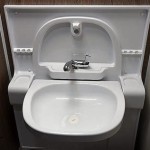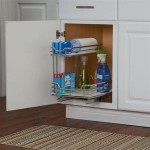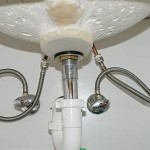Why Does My Bathroom Smell Like Ammonia?
Bathrooms are spaces of cleanliness and sanitation, but sometimes they can develop unpleasant odors, such as the pungent smell of ammonia. These odors can be caused by various factors ranging from inadequate ventilation to plumbing issues and even health concerns. Understanding the essential aspects contributing to the ammonia smell in your bathroom is crucial for identifying and resolving the underlying cause.
Causes of Ammonia Smell in Bathrooms
1. Inadequate Ventilation: Poor ventilation within a bathroom can lead to the buildup of moisture and bacteria, which can produce ammonia as a byproduct. Installing an exhaust fan or ensuring proper air circulation through open windows or vents is necessary to prevent the accumulation of these odor-causing elements.
2. Urine on Surfaces: Ammonia is a component of urine, and if it spills or remains on surfaces within the bathroom, it can emit an unpleasant odor. Thorough cleaning and disinfection of these surfaces using a suitable cleaner can eliminate the smell and prevent its recurrence.
3. Plumbing Issues: A faulty or leaking toilet or a clogged drain can release ammonia into the air. Inspecting the plumbing fixtures for cracks, leaks, or blockages and repairing them accordingly is essential to address the odor originating from these sources.
4. Bacterial Overgrowth: Certain bacteria strains, such as Proteus bacteria, can produce ammonia as part of their metabolic processes. These bacteria can thrive in moist environments, which may be present in bathrooms with poor ventilation or inadequate cleaning practices. Addressing the moisture issue and disinfecting surfaces regularly help control bacterial growth and eliminate the ammonia smell.
5. Medical Conditions: In rare cases, certain medical conditions, such as urinary tract infections (UTIs) or metabolic disorders, can result in the release of ammonia in the urine, which may contribute to the bathroom odor. Consulting a healthcare professional for diagnosis and treatment is necessary to address these underlying health concerns.
Conclusion
The ammonia smell in bathrooms can be a concerning issue, but by understanding the essential aspects that contribute to it, you can effectively identify and resolve the root cause. Whether it's inadequate ventilation, plumbing issues, or bacterial overgrowth, addressing these factors promptly will not only eliminate the unpleasant odor but also ensure a healthier and more sanitary bathroom environment.

Stool Smells And What They Mean Ammonia Metal More Mycrohnsandcolitisteam

Smelly Bathroom 4 Tips From Our Bentleigh Plumbers Watermaster Plumbing

My Bathroom Smells Like A Sewer What Causes That And How Do You Fix It Kitchen Infinity
Why Does My Urine Have A Strong Ammonia Odor To It At Times Quora

Why Does My Bathroom Sink Smell And What To Do About It

Your Toilet Smells Like Rotten Eggs Mr Rooter

What Do The Color And Smell Of Your Urine Tell You

Ammonia Smell In A Bathroom Ehow

4 Urine Smells With Lupus En Broth Ammonia Fruity And Fishy Mylupusteam
What To Do When You Notice A Sewer Smell In Bathroom Spaces Howstuffworks







